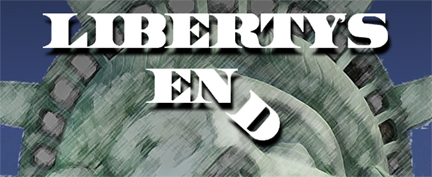| The Breed's Hill Gazette August 2009 | |
 |
|
|
LIBERTY'S END By Dan Shippey & Michael Burns
Only one founder could claim the distinction of having signed The
Declaration of Independence, The Alliance with France, The Treaty of
Paris (ending the Revolutionary War) and The Constitution of the
We often hear the story (I’ve told it on these
pages in fact) of how
“A republic madam, if you can keep it”
has almost taken on a sense of scripture to liberty loving Americans. But the other day when reading Franklin’s closing comments at the Philadelphia convention that created our national charter I saw something that I had not seen before, a quote that is usually cut off before completion. Words that make his “republic” quote seem mild. In 1787, at 81 years of age, Franklin was the oldest of the delegates. His health was deteriorating, his feet were wracked with gout, and his once strong swimmer’s body had long since grown round. Still, his presence at the convention was second in importance only to Washington’s. The delegates knew that the presence of Franklin and Washington gave strength and legitimacy to their work. Franklin followed his usual style in meetings of this type: he listened, he slept, he did not publically debate and he said little--just as he had done during the 2nd Continental Congress a decade before. Franklin always preferred to debate and hammer out details in private, where disagreements could be discussed rationally. When he did speak in a session, it was with purpose and worth listening to.
|
The speech itself is classic Franklin--self depreciating, anecdotal, charming and thought provoking. It was designed to help all the great minds (and those who felt themselves to be) put aside their own minor disputes for the service of the country as a whole. But there in the middle of the speech is a warning. This warning is as stark and relevant today as if Franklin were standing in the room with us personally. In it he realistically acknowledges that no government lasts forever and then goes further to point to exactly when and how the meticulously designed fruits of their labor would end.
“Sir, I agree to this Constitution with all its faults, if they are such; because I think a general Government necessary for us, and there is no form of Government but what may be a blessing to the people if well administered, and believe farther that this is likely to be well administered for a course of years, and can only end in Despotism, as other forms have done before it, when the people shall become so corrupted as to need despotic Government, being incapable of any other.”
A sage draws from the past upon his
years of experience and wisdom, and a seer prognosticates about the
future. Like a mathematician following the equation before him
“for a course of years.”
To the woman outside he gave the charge
“If you can keep it.”
Three years later, his own course of years completed, Franklin died. In his last years he never stopped encouraging his fellow citizens to embrace, improve, and defend liberty, writing several essays on the importance of the abolition of slavery. His funeral was attended by an estimated 20,000 people. The estimated population of Philadelphia at the time was 28,522.
|